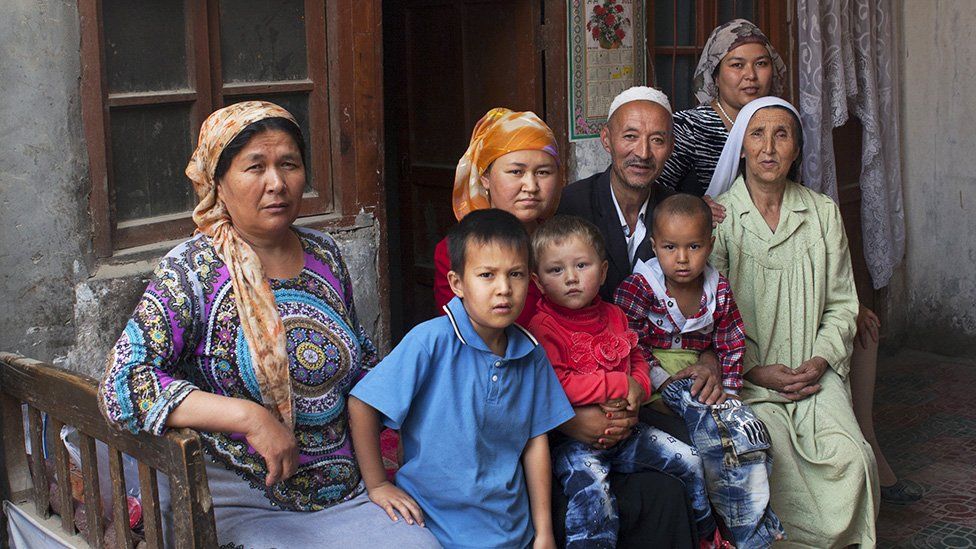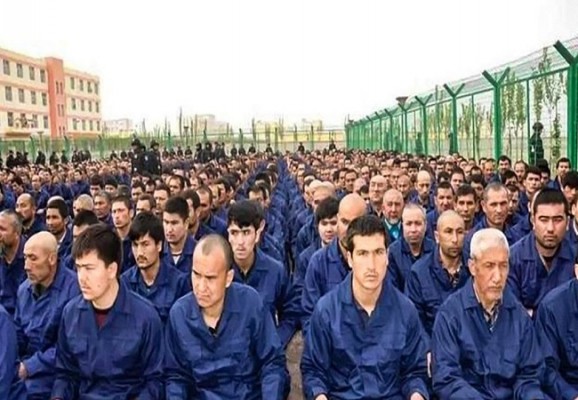The Rohingya issue has not been resolved yet. Chances are low. Before India was embroiled in the NOC debate in Assam, the United Nations suddenly announced that China had detained more than one million Muslims in Xinjiang. Occasionally a storm swept over the Muslims of Sri Lanka. When China, like itself, was able to suppress the Uighur Muslim issue. The news came that a new Israeli attack on Palestine. Meanwhile, the cursed situation of Yemen and Syria is going on, as well as on Afghan-Kashmir.
The pen-key-board doesn’t want to work later when it comes to writing about the state of the Muslim Ummah. When I see my loved ones, the people around me who think I am a monk, I want to step on the wrong path – my mind is more broken. Nowhere is a disaster going to be avoided. We are running again towards that catastrophe. What else is waiting for the destiny of the Ummah in the coming days?
I usually do not. I have had to change my mind several times while writing. Emotions and wrong perceptions often lead our decisions in the wrong direction. The big problem around Islam these days is that we imagine the rest of Islam in the light of what we know.
So now there is no practice of obeying or looking down on anyone. Everyone just decides. I make my own decisions. Spreading stalks is just disagreement and debate. The debate does not stop at the debate table, it quickly leads to conflict.
With the banner of fragmented Islam, we all begin to practice leadership. Instead of compassion-brotherhood-cry, enmity-enmity-hatred becomes dark all around. Yet we have no fatigue, no rest. Which Islamic ideology do we want to move forward with nowadays?
China on The way to Becoming Israel for Muslim Citizens

I got a lot of information about Uyghur Muslims. In China, the media is already completely controlled by the government. These restrictions are more strictly followed in the Uyghur Muslim province of Xinjiang. With few exceptions, the world has no way of knowing what is happening in China. The rest of Dhaka fell into a visible struggle for trade and domination. Although it started a long time ago, the secret repression that the whole Muslim community started after 1/11, especially in Xinjiang, has never stopped.
China has accomplished much of the target behind a few so-called riots, large and small, in the three or nine or thirteen years. The final stage of the campaign is now underway in the name of anti-militancy culture-education by detaining them at the re-education center. After all, the majority of the Uyghur Muslims, including their families or business, is now in turmoil.
China’s direct support for the extermination and expulsion of the Rohingya Muslims, and the horrific rise in the lives of its own Muslims, can only be compared to Israel.
It is important to know the inside-out of any subject before data-analysis-comment. This consideration is rather ineffective in verifying the condition of the Ummah. In this issue, I would like to briefly present a detailed discussion of researcher and The Guardian columnist Jean A. Bunin. For about 18 months, he traveled all over China to talk to Uyghur restaurants. (Uyghur Muslims are not popular in China in all general occupations. They have to make a living outside of Xinjiang as cheap workers, housekeepers, or restaurant workers and peddlers.) How to live with. The first part of the discussion was in this episode.
China’s Muslim Minority: The Guardian’s Columnist Jean A. Bunin’s Secret Mission
Bunin writes- About a year ago I came to Karim’s restaurant. The project to list the food items of the indigenous peoples of China was going on. Already there Uighur ethnic my research has been nearly a decade byayita. The project of creating this menu outside of the original research work was a particularly interesting task. Or it could be called a secret mission. Because the Uyghurs are originally from the westernmost province of Xinjiang, China. Which is autonomous and somehow considered foreign to ordinary Chinese.
When I was talking to Uyghurs at restaurants in Shanghai, Beijing, or Guangzhou, some of China’s main cities, it was nothing less than a secret mission. The main rival of the Uyghurs in Xinjiang is the Han people, whose presence and population in these cities is about 90%!
I especially remembered Karim when I visited about 200 restaurants in 50 cities in China. The traditional pile is also rice and the special kind of hand-drawn noodles I got from Karim – a special dish of Uyghurs included in the Central Asian menu. Karim’s restaurant was able to make the dish very well. Bigger than that, there I found the authentic environment of the Uyghur nation. That’s why I spent more than an hour or two after eating for the first time. Karim was handling everything neatly. His colleagues were fulfilling their responsibilities through great understanding among themselves. In addition to maintaining an atmosphere of excitement and joy, they were also talking about their own regrets and concerns.
During one of my visits, the general discussion turned to serious discussions about their weaving in the Han inhabited areas. The staff present and various Uyghur customers were talking about how local hotels refused to rent hotel rooms to Uyghurs knowing their identity. One of them joked that not only we, but also a Uyghur policeman had refused to give him a room that day. As an Asian, he looks a lot like the Middle East and with his ability to speak English fluently, Karim also gets initial approval for hotel room bookings. But seeing his Uyghur identity on the Chinese national identity card would change their appearance. He refused to rent a room.

It will soon become clear in the discussion ahead that the seemingly big problem was little for the Uyghurs. Karim was talking about the winter of 2017. When his country, Xinjiang, home to more than 100 million Muslims, came to the fore, the Chinese government announced all-out counter-terrorism and anti-religious extremism measures. Chen Quanqu, known for leading the crackdown in Tibet, launched the crackdown shortly after he was appointed party secretary in Xinjiang. Contrary to a few isolated incidents, when the government called it a disciplinary operation, critics directly referred to it as a machine to wipe out Uyghurs. In fact, it was the atmosphere that finally brought it about.
In just over a year, Xinjiang has become a notorious police province through China’s toughest crackdown. Thousands of Uyghur Muslims were then trapped in special camps, which the government was telling them to change through proper education. The rest of the thousands were then thrown straight into prison or they disappeared forever. People inside the detention camps have learned in various ways that they are not only being forced to live in unhealthy environments but are also being tortured on a regular basis. Various physical and mental. Being employed as a heavy industry worker. Many lives are being lost because they cannot bear it. Journalist and columnist James A. Millward, who has been researching Xinjiang and Uyghur muslims for three decades, wrote in a New York Times column in February that the catastrophic situation in Xinjiang in 2016 was unprecedented.
For most Uyghurs, the last spring will be the beginning of their troubled times. Disaster is their right, their livelihood and even their identity. Many have lost their lives. People like Karim, who have been to various Muslim-majority countries for some time for various reasons, were initially identified as so-called extremists. Being. When I went to Karim’s hotel again a year later, one of his neighbors told me that Karim had the same fate. He had to be thrown in jail. Karim died at one stage as he could not bear the pressure of torture and heavy labor.
Politically you might say so. The reality is that Karim was killed by the state.
Any Criticism of Xinjiang is Prohibited on China
China has banned any criticism of Xinjiang. Last summer, Foreign Minister Hu Jintao declared that it was wrong to show sympathy for Xinjiang and that criticizing the operation amounted to interference in China’s internal affairs. Xinjiang’s foreign affairs director, Iliti Saliyev, has claimed that the happiest Muslims in the world live in Xinjiang.
Talking to Uyghur Muslims might have been the best way to know their true condition. But he doesn’t have the environment. Uyghurs cannot talk to outsiders. Their own voices may not reach them.
Foreign Journalists had no Opportunity to Collect Independent News
I spoke to a number of foreign journalists who had the opportunity to visit Xinjiang. They told me directly that despite many attempts to get entry, they had no opportunity to gather independent news. They had to face interrogation at every station, check post and even at street corners. He has been kept under strict surveillance all the time. He never met the Uyghurs but could not speak. Many Uyghur Muslims refused to open their mouths for fear. People whose relatives are abroad, or who have spoken or communicated outside the country on the net or mobile, are being picked up. Local police called the Uyghurs “bad Xinjiang people.”

Anyway, I spent the best part of 18 months with the people of Xinjiang and the bad Xinjiang people inside Shanghai in need of my linguistic research and food list. At that time, I was talking to hundreds of Uyghur Muslims, most of whom were male restaurant workers, businessmen, small and large Modi shopkeepers. For the most part, we didn’t talk about politics. Even then, even if they didn’t want to, topics would come up in their discussions in various ways. The horror of their situation shook me.
How to Start Speaking out against This Oppression
All I can say in my 18 months is that none of us deserve to talk about Xinjiang. They will only be able to present their true condition. In the same way, it is up to them to decide how they will start speaking out against this oppression or how it will continue.
I just wanted to shed some light on the situation there. Nick understands the rest of the world. ‘
Monthly Neyamat, 10/06/2019


Leave a Reply